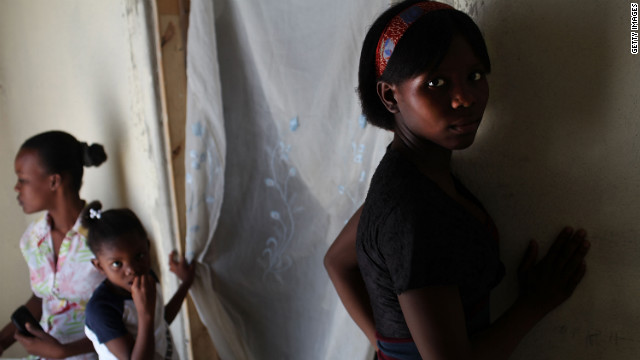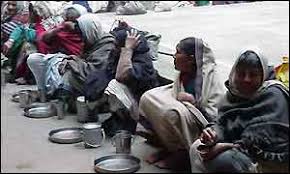My friend Rachel keeps
me informed of all things
happening in France.
She just emailed me
the front page, breaking
news headline from France.
Les Parisiennes ont (enfin) légalement

In Egypt, Rebecca Chiao was standing
on a busy street in Cairo when a man unzipped
his pants and exposed himself to
her while touching himself. He walked toward
her, touching himself the whole time.
The crowd either ignored Rebecca or
looked at her with disgust, like it was she
who invited this man's harassment. Even
her male friends told her she should dress
differently, stand differently, should not
be on the street and that the harasser was
powerless to resist.
Rebecca co-founded Harass Map Egypt.
She uses social media to support her effort
to address harassment. 500 volunteers
go into their own communities to address
harassment, to create safe zones for
the victims. For Rebecca and her team
of volunteers it is no longer okay to
accept harassment as the norm.
And in Haiti, nearly three years
after the earthquake of 2010,
displaced women with their children
continue to fear the rape and sexual violence
thrust upon them in their tent cities.


might it be possible that... for once the world might see in the
me informed of all things
happening in France.
She just emailed me
the front page, breaking
news headline from France.
Les Parisiennes ont (enfin) légalement
Parisiennes, women that is,
finally have the right
finally have the right
to wear pants.
France has entered the 21st century.
Since an 1799 ordinance it has been
interdit aux femmes de porter des pantalons
---illegal for women to wear pants.
Marie-Rose Astié de Valsayre,
France has entered the 21st century.
Since an 1799 ordinance it has been
interdit aux femmes de porter des pantalons
---illegal for women to wear pants.
Marie-Rose Astié de Valsayre,
one of the first feminists of the 19 century
who pursued medical and pharmaceutical
studies, rallied against this law. Marie-Rose
also fenced and lets face it,
a sword and skirt are dangerous allies.
Perhaps France should write a law
While France is finally addressing
prohibiting speedos-- for men, in public pools.
Unfortunately, the French have done the reverse.
It is illegal for men to wear any swimwear
but a speedo in public pools.
None of those knee length swim trunks that North
American males prefer, these are seen as unhygienic
in France.
While France is finally addressing
this ridiculous and prejudicial pant limiting law,
many women in many countries
are rising up against their subjugation.
In India, as anthropologist Martine van Woerkens
writes in her book We are not flowers! We are sparks of fire."
Indian feminists have raged for two centuries
against selection of births, arranged
against selection of births, arranged
marriages, working girls, dowry killings and
the tragic plight of widows who have no voice.
the tragic plight of widows who have no voice.
on a busy street in Cairo when a man unzipped
his pants and exposed himself to
her while touching himself. He walked toward
her, touching himself the whole time.
The crowd either ignored Rebecca or
looked at her with disgust, like it was she
 |
| Rebecca Chiao |
her male friends told her she should dress
differently, stand differently, should not
be on the street and that the harasser was
powerless to resist.
Rebecca co-founded Harass Map Egypt.
She uses social media to support her effort
to address harassment. 500 volunteers
go into their own communities to address
harassment, to create safe zones for
the victims. For Rebecca and her team
of volunteers it is no longer okay to
accept harassment as the norm.
And in Haiti, nearly three years
after the earthquake of 2010,
displaced women with their children
continue to fear the rape and sexual violence
thrust upon them in their tent cities.

Before 2005, rapes in Haiti were treated as
nothing more than crimes of passion.
founders of three of Haiti's most important advocacy organizations
working on behalf of women and girls changed this view.
All three Haitian women died in the earthquake of 2010.
Whether it is a law that gives
women the right to wear pants
or a movement rising up and against all
forms of oppression, I wonder
average Haitian, not the face of an ‘other’
that must be feared, but a human being within which the spirit moves,
whether by the hand of a Christian, or African god,
a spirit deserving of daily, holy bread?" Myriam Chancy
Might it be possible that the world might see
in women, not the face of a property to be owned
but a temple to be honoured.
“Where love is, there is transformation.
Without love, revolution has no meaning,
for then revolution is merely destruction, decay,
a greater and greater ever-mounting misery.
Where there is love, there is revolution,
because love is transformation from moment to moment.”
Krishnamurti, The First & Last Freedoms

No comments:
Post a Comment